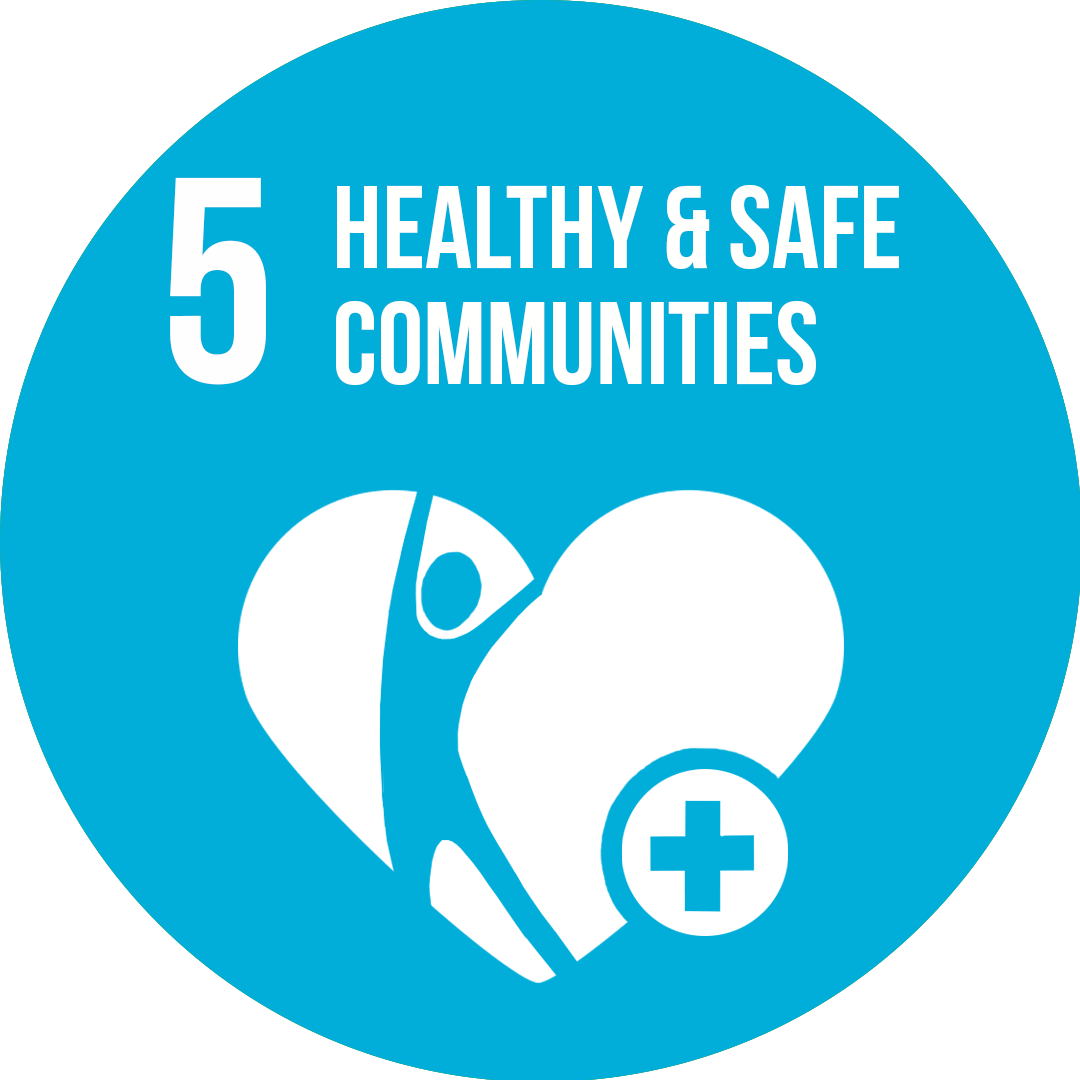MEETING DATE: 5/10/2022
DEPARTMENT:
DEPT HEAD/DIRECTOR:
AGENDA ITEM PREPARER:
SBC DEPT FILE NUMBER: 156
SUBJECT:
BOARD OF SUPERVISORS
Discuss and consider the presented options for authorizing Microenterprise Home Kitchen Operations (MEHKOs) in San Benito County. Discuss and consider the presented options for Food Safety Components to include in the MEHKO Ordinance. Delegate authority to staff to take any necessary actions to implement direction from the board.
SBC FILE NUMBER: 156
AGENDA SECTION:
REGULAR AGENDA
BACKGROUND/SUMMARY:
Since the State established Microenterprise Home Kitchen Operations (MEHKOs), over 100 MEHKOs have been authorized by the following jurisdictions Riverside County, Alameda County, San Mateo County, Santa Barbara County, San Diego County, Solano County, Imperial County, Lake County, Sierra County, and City jurisdiction(s) who have their own Department of Environmental Health Authority and can thus opt-in separately from their County. San Diego County is the latest County to Opt-in by Ordinance for two years.
The jurisdictions that took formal action to decline authorizing MEHKOs are Siskiyou County (January 2019) and San Joaquin County (March 2020).
All other governing bodies took no formal action to authorize or decline to authorize MEHKOs, and as a result, MEHKOs are not allowed to operate in those jurisdictions.
MEHKOs cannot operate or be permitted until authorization is granted by the governing body of the local enforcement agency. The County of San Benito (County) Board of Supervisors (Board), as the governing body of Environmental Health (EH), has the authority to authorize a local MEHKO program for the entire San Benito County region. If approved, the Board would be allowing MEHKOs for both unincorporated and incorporated cities in the area.
On March 8, 2022, the Board directed staff to return with an actionable item and provide the incorporated jurisdictions with a secondary presentation. Information and options to authorize MEHKOs throughout the County consistent with the State Law (CRFC) are herewith presented for Board consideration and direction.
REQUIREMENTS IN STATE LAW (THE CRFC) FOR MEHKOs
The CRFC specifies that MEHKOs:
- Must be operated by a resident of a private home or apartment;
- Must obtain a health permit, pass an initial home kitchen inspection and undergo a maximum of one routine inspection per 12 months;
- Are limited to one full-time equivalent food employee, not including a family member or household member;
- Must prepare, cook, and serve food on the same day;
- Are limited to a maximum of 30 individual meals per day and 60 individual meals per week;
- Are restricted from specialized processes that require a Hazard Analysis Critical Control Point Plan (a written plan specifying procedures for maintaining food control throughout the entire food preparation, distribution, and storage process), or producing, serving, or selling raw milk or raw milk products;
- Are restricted from producing, manufacturing, processing, freezing, or packaging milk or milk products, including, but not limited to, cheese, ice cream, yogurt, sour cream, and butter;
- Are restricted from serving or selling raw oysters;
- Are prohibited from operating as a cottage food operator, caterer, temporary event vendor, or mobile food vendor from their home;
- Must sell directly to consumers for onsite dining, delivery, or take-out; and;
- Are limited to a maximum $50,000 in annual gross sales, as adjusted annually for inflation based on the California Consumer Price Index.
EXEMPTIONS:
If authorized throughout San Benito County, MEHKOs will be subject to the requirements established in the CRFC. MEHKOS are inspected and regulated like other Food Facilities. MEHKOS must follow hundreds of the CA Retail Food Code requirements, making them similar to how full-scale restaurants are regulated. However, MEHKOs have about 25 exemptions from the CRFC, primarily to accommodate the differences between a home kitchen and a commercial kitchen. A complete list can be found in Section 11367.1 of the California Retail Food Code.
INSPECTIONS:
Following CRFC Section 114367.3. MEHKOs shall be subject to the three following types of inspections by the enforcement agency: (1) One routine inspection per year and scheduled with the operator (2) An investigation inspection also scheduled with the operator; and (3) An emergency inspection, with the enforcement agency having just cause that the MEHKO poses a severe hazard or immediate threat to public health. Notice of an emergency inspection is reasonable under the circumstances.
EQUITY IMPACT:
Authorizing microenterprise home kitchen operations (MEHKOs) in the region would result in economic benefits to local communities and home cooks from a wide variety of backgrounds. Data from Riverside County, the first County to adopt a MEHKO program, found that MEHKO operators were 85% people of color and 60% women. MEHKOs would create opportunities for self-reliance and empowerment for the local community members, such as immigrants, by increasing their family income and contributing positively to the local economy.
FISCAL IMPACT:
If the Board authorizes a MEHKO program, there is a request to fill the currently vacant position and another additional Full-Time position in the EH division to account for the additional work associated with the MEHKOs. Other considerations for implementation would include office space, equipment, and vehicle/maintenance for the added workload & positions.
There is no budgetary impact if the Board declines or delays the decision to authorize MEHKOs (option 2 or 3). There will be no change and no additional staff associated with these options.
LOCAL MEHKO PROGRAM AND FEES:
If the Board authorizes a MEHKO program for the County, Environmental Health would be the local enforcement agency responsible for food safety. Before operating, each MEHKO would be required to submit a Standard Operating Procedure (SOP), receive an initial inspection by EH, pay a fee permit and obtain a health permit. Staff will review the SOP, which includes checking the menu, food preparation methods, and how dishes and utensils will be washed and sanitized in the home, and conduct the initial inspection before issuing the initial permit. Since AB 626/377 was enacted, EH has not developed fees to cover the full cost of services needed to implement a MEHKO program. If the Board authorizes MEHKOs, EH will return to the Board with a recovery cost proposal for MEHKO program fees for adoption at a later date.
ROLES AND RESPONSIBILITIES:
While EH is the local enforcement agency responsible for food safety, complaints and issues related to community impacts, including noise and parking, would be the responsibility of the individual incorporated city's code enforcement or corresponding compliance department. For the unincorporated communities in the region, the County's Code Enforcement would be responsible for issues related to community impacts.
The chart below shows EH's roles and responsibilities and the Cities or County Code Enforcement in the unincorporated communities.
|
ENVIRONMENTAL HEALTH
|
CITY OR COUNTY CODE ENFORCEMENT
|
|
CRFC enforcement
|
Local Land use ordinance enforcement
|
|
Food Safety
|
Prohibited Signage /outdoor advertising displays
|
|
Vermin in the house
|
Noise
|
|
Gross annual income verification
|
Traffic /Parking
|
|
Foodborne illness complaints
|
Home construction /remodeling
|
|
Daily/weekly meals served
|
Public Nuisance Regulations
|
|
Food debris /food refuse buildup
|
Non-food debris/refuse buildup (solid waste)
|
If the Board approves a MEHKO program, County staff will address nuisance complaints related to impacts from a particular MEHKO business in the unincorporated communities and work with the MEHKO operator to rectify the impact. During this process, the staff's goal will be to work with the operator and obtain voluntary compliance related to community impacts already addressed in the County Code. If voluntary compliance is not possible, actions contrary to the code are considered public nuisances; any violation of the County Code or failure to comply with any provision is a public nuisance. Staff may take escalated enforcement action where public nuisances continue, such as issuing the owner and/or operator citations, civil penalties, or other authorized remedies until the issue is corrected.
Additionally, there are safeguards within existing State laws to reduce community impacts from MEHKOs and similar businesses. The CRFC prohibits jurisdictions from adopting additional zoning restrictions, further limiting MEHKOs. However, nothing prohibits local jurisdictions from adopting nuisance-related regulations consistent with State law. A few jurisdictions have adopted MEHKO-specific regulations addressing traffic, parking impacts, noise, and odor.
ADDITIONAL FOOD SAFETY MEASURES FOR BOARD CONSIDERATION TO INCLUDE IN THE MEHKO ORDINANCE
The food safety component includes:
Food Safety Certificate
The CRFC requires food facilities that prepare, handle, or serve non-packaged, potentially hazardous food to have an owner or employee who has successfully passed an approved and accredited food safety certification examination within 60 days of issuing a permit.
To obtain a food safety certificate, a person must attend an 8-hour course that teaches cooks and food handlers how to prevent foodborne illness and successfully pass a test. While the CRFC allows up to 60 days after opening to attend this training, the MEHKO ordinance can require it sooner to ensure home cooks are educated on food safety before opening their doors to customers.
Options presented for consideration include:
- The food safety certificate must be submitted as part of the MEHKO application.
- Allow the food safety certificate to be obtained within 60 days of issuing a MEHKO permit.
Allowable Food Storage Areas
The CRFC limits where food facilities may store food to protect the food from contamination, ambient temperatures, and vermin and prevent foodborne illness. However, the CRFC does not define the allowable food storage areas in MEHKOs.
Options presented for consideration include:
- Limit allowable food storage areas to areas inside the residence (ex. Non-bedrooms, pantries, kitchen, etc.)
- Allow food storage in regions outside of the home (ex. Garages, outdoor shed, workshops, etc.).
Number of Meals - Daily/Weekly – Customers
The CRFC limits MEHKOs to prepare and serve no more than 30 meals per day and no more than 60 meals per week. EH may decrease the limit of the number of individual meals prepared based on the food preparation capacity of the operation but cannot, in any case, increase the limit of the number of individual meals prepared. If the volume of meals prepared and served is of concern, the maximum number of meals per day or per week could be reduced for all MEHKOs.
Options presented for consideration include:
- Maintain the maximum number of meals served (30 per day/60 per week).
- Reduce the maximum number of meals served.
MEHKOs per residence
The number of MEHKOs per residence is not defined in the CRFC. Both Riverside County and Santa Barbara County included language in their MEHKO ordinances to limit MEHKOs to one per residence. CDPH issued guidance indicating multiple people living in the same home cannot operate numerous MEHKOs. Since the clarification was in the form of guidance and not in statute or regulation, a component regarding the number of MEHKOs allowed per residence is included in the proposed MEHKO Ordinance for the Board's consideration. Staff recommends limiting the number of MEHKOs to one per residence. Limiting the home to one MEHKO will limit the amount of food being stored at the residence associated with the operation. Excess food storage can lead to food being stored at unsafe temperatures in overstocked refrigerators or in areas that are more prone to contamination and vermin, such as floors and outdoor spaces. Additionally, this will limit potential community impacts related to traffic, parking, trash, and noise.
The food safety components supplement the CRFC and clarify requirements for MEHKOs to protect public health. Each of the components presented are optional, and Board direction is requested for each of the food safety components in the proposed MEHKO Ordinance.
OPTIONS FOR BOARD CONSIDERATION FOR AUTHORIZATION OF A MEHKO PROGRAM
Today's request is for the Board to provide direction regarding authorization of a MEHKO program for the region by selecting one of the following options:
Option 1 – Authorize a Microenterprise Home Kitchen Operations Program.
The CRFC allows the Board to authorize a local MEHKO program by adopting a resolution or Ordinance. On April 19, 2022, San Juan Bautista had their City Council Meeting and consensus to move forward with the program. On May 2, 2022, the City Council of Hollister received their secondary presentation, also by Cook Alliance Executive Director, Roya Bagheri. Consensus was unclear, no clear direction if the City of Hollister is in favor or in opposition of the program. If the Board adopts an ordinance, the program will be implemented as codified in State Law (CRFC).
Option 2 – Decline to Authorize a Microenterprise Home Kitchen Operations Program.
If the Board declines to authorize MEHKOs, they can either take no action today or affirmatively decline to permit MEHKOs for the region.
Option 3 – Delay the decision to Authorize a Microenterprise Home Kitchen Operations Program
Suppose the Board delays the decision to authorize MEHKOs. In that case, no action is taken to allow or decline MEHKOs in the foreseeable future, and the Board may revisit the program later.
If the Board Selects Option 1 and authorizes a MEHKO program Countywide, the Board is requested to provide direction on the type of authorization by selecting one of the following options:
Option 1A – Authorize a MEHKO Program by Ordinance.
Suppose the Board adopts an ordinance authorizing a MEHKO program for the region. In that case, the program will be implemented as codified in State law (CRFC), and subject to any local requirements included in the adopted Ordinance.
Option 1B – Temporarily authorize a MEHKO program by Ordinance. (For two years or per Board recommendation)
Suppose the Board adopts an ordinance temporarily authorizing a MEHKO program for the region for a period of two years. In that case, the program will be implemented as codified in State law (CRFC), and subject to any local requirements included in the adopted Ordinance.
While the temporary authorization could limit the duration of the MEHKO program, it cannot be limited to certain areas or incorporated cities in the region. It would apply to the entire San Benito County region. The proposed MEHKO ordinance for temporary authorization includes a sunset date.
If the Board elected to move forward with any proposed ordinances, it would require two steps. The first reading of the ordinance and then it would be brought back for adoption the following meeting after the initial reading and would be effective 30 days after adoption.
ENVIRONMENTAL STATEMENT
None of the options presented to the Board today require additional environmental analysis. Option 1 would be a discretionary decision to allow a new activity. However, those options would be subject to strict limitations on how many meals could be prepared, cooked, and served on the same day from each home kitchen operation. With those limitations, therefore, it can be seen with certainty that allowing such activity would not significantly affect the environment. CEQA Exemption 15061(b)(3) of the CEQA Guidelines would, therefore, be applicable. Option 2 would affirmatively reject this new program and decisions to reject projects are exempt from CEQA review pursuant to CEQA Exemption 15270.
RESOLUTION OR ORDINANCE NEEDED FOR THIS ITEM:
No
CONTRACT NEEDED FOR THIS ITEM:
N/A
CONTRACT AND RFP HISTORY:
The California Retail Food Code establishes uniform health and sanitation standards for retail food facilities for regulation by the State Department of Public Health. It requires local enforcement agencies to enforce these provisions.
Before 2012, the California Retail Food Code (CRFC) required all food sold to consumers to be made at an inspected commercial kitchen. With the passage of the California Homemade Food Act, known as "Cottage Food Operations" (CFO) in 2013, specific low risk (i.e., shelf-stable, non-perishable) food products such as bread, fruit, jams, and dried fruit could be made in private home kitchens and be sold to consumers under limited conditions.
Microenterprise Home Kitchen Operations (MEHKOs) were created via Assembly Bill (AB) 626, passed unanimously by the State Assembly and Senate, and signed into law by Governor Brown on September 18, 2018. AB 377 (AB 626 clean-up bill) was signed by Governor Newsom on October 7, 2019.
This legislation permits counties to authorize individuals to use their home kitchens to prepare, sell, serve up to 30 meals per day, or 60 meals per week, and collect a maximum annual revenue of fifty thousand ($50,000; 50K), as adjusted annually for inflation based on the California Consumer Price Index. Family members can be employed to help operate MEHKOs, along with a maximum of one paid non-family employee. Menus are restricted to items that can be prepared and sold the same day. Risky food preparation techniques are prohibited; therefore MEHKOs may not produce, serve, or use raw milk, or serve raw oysters or any other food requiring a Hazard Analysis Critical Control Point Plan (HACCP; a written plan specifying procedures for maintaining food control throughout the entire food preparation distribution and storage process). Meals can be served at home, picked up by the customer, or delivered by the MEHKO operator.
California Department of Public Health authorized online intermediaries to provide the mechanism to place an order with a MEHKO. MEHKOs require a valid health permit through the Department of Environmental Health, an initial inspection, and annual inspections thereafter. MEHKOs owners must obtain a Food Manager Certificate, and employees are required to get a Food Handler Card.
On April 13, 2021, The Board of Supervisors received a presentation from staff and discussed the potential adoption of an ordinance permitting Microenterprise Home Kitchen Operations (MEHKOs) to operate within the County of San Benito.
No action was taken from April 13, 2021, Board meeting. The board consensus took the MEHKO item back to the Intergovernmental Committee to discuss further and receive input from respective Cities, the City of Hollister and the City of San Juan Bautista.
The MEHKO item was presented to the Intergovernmental Committee on June 3, 2021, and it was agreed that representatives from both Cities would take the item back to the respective boards.
San Juan Bautista City Council, on June 15, 2021, heard and discussed Microenterprise Home Kitchen Operations in the City of San Juan Bautista. The consensus of the Council was to opt out of the program.
No definite input was received from the City of Hollister; when it was tentatively placed on March 7, 2022, Hollister City Council Meeting Agenda for discussion.
On March 8, 2022, the Board received a secondary presentation from Legislative Aide, Rexford Scott on the program and Roya Bagheri, Executive Director of Cook Alliance provided public comment on the item as well. Cook Alliance had worked closely with the legislative office and other advocates to implement the MEHKO program statewide.
On the April 7, 2022 the Intergovernmental Committee, it was requested that a secondary presentation be provided to each of the respective cities that would be impacted, City of Hollister and City of San Juan Bautista.
April 19, 2022 the City Council of San Juan Bautista received their secondary presentation by Cook Alliance Executive Director, Roya Bagheri. Consensus was to move forward with the program.
May 2, 2022, the City Council of Hollister received their secondary presentation, also by Cook Alliance Executive Director, Roya Bagheri. Consensus was unclear, no clear direction if the City of Hollister is in favor or in opposition of the program.
The following are benefits to authorizing MEHKOs:
- MEHKOs create significant economic opportunities for small-scale, home cooking operations which are primarily operated by women, immigrants, and people of color
- Encourages existing "informal" home food operations to become safer and legal
- Enables family members to continue providing in-home care for developmentally disabled family members and older family members while still earning income
- Creates another pathway to supplementing family income for those hardest hit by the COVID-19 pandemic and lockdowns
- Enables aspiring entrepreneurs to try out and vet a menu while learning the basics of what it takes to run a small scale retail food operation.
- Provides additional food service options in remote locations.
LAST CONTRACT AMOUNT OR N/A:
N/A
STATE IF THIS IS A NEW CONTRACT/ HOW MANY PAST AMENDED CONTRACTS/ OR N/A:
N/A
STRATEGIC PLAN GOALS:




BUDGETED:
N/A
Budget Adjustment Needed: N/A
Unfunded Mandate (Is this a mandate not funded by the State): N/A